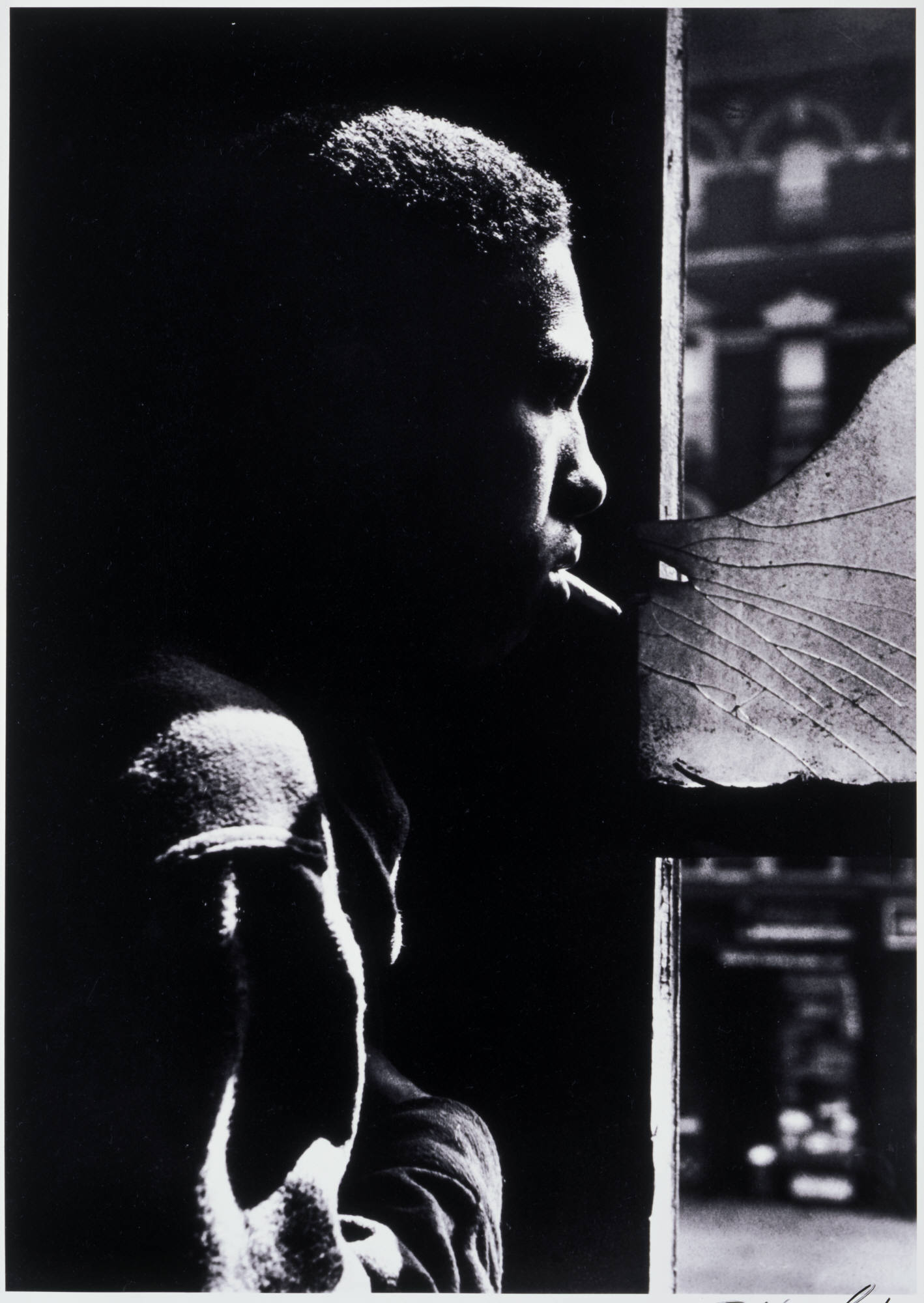Gordon Parks
The people of Fort Scott, Kansas, have stayed with Gordon Parks all his life. He grew up in this prairie town, the youngest child in a family of fifteen, amid poverty and racism. In 1963 Parks published a moving autobiographical novel, The Learning Tree. During his childhood, he asked his mother if the family had to stay in Fort Scott forever, and she replied: "I don't know son, … but you're to let this place be your learning tree. Trees bear good fruit and bad fruit, and that's the way it is."
This image is among the many pictures of individuals and events Parks created of his hometown. An anonymous young man is lost in reverie, seemingly unaware of the photographer's presence. His bearing and expression and the closely cropped frame isolate him. The background is blurred, but the objects on the counter suggest the setting is a bar. Parks is a master of human observation and storytelling. He distills a world of experience and emotion into the way light and shadow play across the jaw, fedora, and bent hand. Parks called his camera his "weapon against poverty and racism." Parks's own determination and achievement suggest that this is not an image of an individual defeated, but one contemplating a way out.
Gwen Everett African American Masters: Highlights from the Smithsonian American Art Museum (Washington, D.C. and New York: Smithsonian American Art Museum in association with Harry N. Abrams, Inc., 2003











